|
“Oh that my words were recorded, that they were written on a scroll...” ~ Job 19:23 Each of us possess gifts that stir within us until something causes us to use them as an expression of who we are, or helps to bring us life. For me, writing is something that I discovered years ago that just simply seems to live within me.
That's how it is about discovering the things that brings us life! For me, like any gift that we may have, is what opens up new spaces within that we weren't necessarily existed. Our gifts invite us to embark on a journey without a known destiny. In many ways, our gifts teach us something about trusting who we are. It's as if we have to tell ourselves: "I'm unsure what 'this' seems to be that is drawing my heart closer to something that is within, but I will simply trust that as it becomes known, I will trust that somehow it will make a difference in my life." Our gifts are like loaves and fishes on the countryside, trusting that it will grow and multiply. The gifts that we possess that become known to others, then seems to multiply as people begin to draw us in, trusting that the gifts will multiply in the sharing. I am still amazed at how just a few words in my heart seem to flow onto pages that then are read by others and shared. The same goes for any gifts that we possess and trust to make themselves known. When we share our gifts, we start discovering how much is actually hidden underneath our thoughts and dreams, which then become part of the richness of our tapestry that others see and know. Stay in God's grip! G. Todd Williams (c) 2019 "I am the vine, you are the branches. Those who abide in me and I in them bear much fruit, because apart from me you can do nothing." ~ John 15:5 I spent a good portion of yesterday talking with a woman who was trying to find a way to forgive her mother that she has been caring for. As a child, her father had died and she and her mother were "left to make it on our own."
At the age of nine, her mother's new husband literally "sold her" to be a "house servant." Two years later, her mother, a widow once again, came and got her from the home, and the two went to live with another relative, where she once again, "basically worked and gave my mother every penny I earned." It wasn't until she turned fifteen when she fell in love with a much older man, "who saved me from the life I was living." She married and, "never looked back." "But now, here I am, a widow, and taking care of the woman who simply could never find a way to care for me, and I am demonstrating each day what love looks like to me. Unconditionally." The love that we have for one another can simply be a struggle at times. We each have times where we have poorly loved one another, and then we must find a way to introduce forgiveness into the relationship in order to find peace. Our learning to love one another through our weaknesses can be among the greatest challenges we may ever face. Especially when the the weakness occurs with someone we love. For this woman, forgiveness actually is beginning with herself. She admitted, "I need to forgive myself for feeling this way about my mother." Noting that her mother is no longer the, "same person she was," as disease and dementia has changed her, "I know that I will never truly be able to resolve everything I am feeling." Recognizing that God's mercy is greater than our pain, in itself becomes the initial step to forgiveness. Validating her feelings was something that I felt necessary to do. The pain that she experienced, and the reality that her mother had not been able to protect her from many things as a child. Additionally, neither one of us were in a place to offer excuses for the decisions her nother had made. We live in an imperfect world, where each day we are exposed to the decisions that others have made in their lives. When we have been harmed by others, or in this case, even "sold," for the sake of someone else's gain, finding a way to get to the place of forgiveness can be a lifelong journey. This woman is living into this each day. As our visit came to an end, we focused on taking all of these feelings, the pain, and circumstances, and placing them into her hands. She could then make the choice to hold onto them, making a fist while recognizing the real anger that she owned, or to find the strength to open her hands and to allow for God's mercy to take them from her. For any of us, our wounds can serve as both a place for healing to begin, as well as, a reminder of what we have been through and arrived on the other side, still in one piece, but changed. For her, it was the beginning of finding a way to wholeness as she continues to care for her mother, and as she seeks to let go of the pain that has directed her decisions most of her life. Stay in God's grip! G. Todd Williams (c) 2019 Trust in the Lord with all your heart and lean not on your own understanding; in all your ways submit to him, and he will make your paths straight. ~ Proverbs 3:5 - 6 This morning I am finishing the sermon I will share later today at the funeral of one of my hospice patients. The man and I never shared a single word, but I learned so much about him as he trusted in those around him to care for his needs.
The writer of Proverbs in chapter 3 invites us to "Trust in the Lord with all your heart, and do not lean on your own understanding." Words of wisdom for each of us, especially those of us, including myself, who sometimes struggle to understand why it is that some things happen in our life. In many ways, trusting in the Lord is the invitation to be present with God, even in all our own imperfections. Trusting in the Lord means that we surrender our entire selves to God each day, no matter what the circumstances that we find ourselves living in. In many ways, it is through our broken, vulnerable and humanness that we begin to understand what trusting in the Lord looks like. In many ways, God becomes visible to us in these moments. In our joys, as well as, our sorrows, successes and the times we have failed, our hopes, as well as the very things we fear, are all invitations for us to trust in the Lord. We are not invited to dwell on the things that we do not understand. We are invited to simply trust! In many ways, each moment is a lesson in trusting God! Our many prayers lifted, our sacred conversations and our moments when we simply raise our hands as we surrender, all bring us closer to the place where we are trusting in God. Stay in God's grip! G. Todd Williams (c) 2019 "The heavens declare the glory of God; the skies proclaim the work of his hands. Day after day they pour forth speech; night after night they display knowledge. There is no speech or language where their voice is not heard." ~ Psalm 19: 1-3 There is something about breaking bread, lifting a cup in prayer, and the words reminding us that bread represented a body broken, and that a cup represented blood that would be poured out for many.
When God took on flesh in Jesus Christ, the Divine and the created, the eternal and the temporal became united. This unity now means that all who live now, shall live forever. Everything mortal now points to the immortal Creator. In and through Jesus all creation has become the means for the face of God to be revealed to us. What I have discovered is that all things are sacred because God has spoken all things into existence. There is a redeeming quality in all things and everyone because with each creative stroke of the master, it is done in love. We aren't just here. We are an intentional part of the masterpiece! Seas and winds, mountains and trees, sun, moon, and stars, and all the animals and people have become sacred windows offering us glimpses of God. The sky above declares the glory of God, and we are reflective of God's glory. Let it shine, let it shine! Stay in God's grip! G. Todd Williams (c) 2019 The King will reply, "I tell you the truth, whatever you did for one of the least of these, you did for me." ~ Matthew 25: 40 Yesterday I spent several hours with a family who lost a dear matriarch. While we waited the nearly three hours for the funeral home to arrive, I sat and listened as several family members shared their memories. Because the person could not afford a funeral service, the scene became the final viewing for the woman, and ultimately her funeral.
The news began to travel that she had died, and before long, a series of visitors arrived. Each expressing grief as they saw her initially, and then the sharing of stories. It reminded me of stories of when people would die at home and the viewing and service would take place in the parlor of the home. In many ways I was grateful for the time the family and friends of the woman had to gather. Twice in the time that we were together, people invited me to lead the group in prayer. Both times I understood the sacred request, and twice, I was reminded that we were no longer strangers, but brothers and sisters, acknowledging the loss of one of our own. I must admit, I am often reminded of the poverty that exists around us, but yet, in the physical existence of poverty there exists a spiritual treasure. I was no longer a stranger, and was offered something to drink, and invited to sit at the family table to share in some fresh-baked cookies that a neighbor brought in, "Just because," the woman who had died had made cookies for others in the past. During the years of working with the homeless in Houston, there were many times when I realized I was no longer a stranger, but a welcomed friend. The gift of hospitality is one that I often discover among those who many would claim to be the, "least of these." Those who are marginalized in the world are essentially the heart of the body of Christ. That is exactly how it is supposed to be! As the living instruments of Christ, we are called to continue to keep going to the marginalized in our society. The homeless, those who hunger, children who are political pawns, those who are labeled as "other," and those who are reminded that they somehow are not welcomed... these are the ones we are called to seek out first. As I stood on the porch of the second story apartment as the funeral home representative arrived, I asked what I could do to help? "Stand here and make sure no one walks off with my gurney." I shrugged at his words and wanted to tell him what I had experienced over the last several hours. Of neighbors coming to pay their respects, of strangers hugging one another, and of genuine acts of love that had been extended. He was a stranger in a strange land, and he was not about to open his eyes and see a woman who had been loved by many, who happened to be poor, and was about to be taken from the community that she had become a part of. I was reminded in that moment that the Body of Christ can be renewed and be a place of wholeness when we shift our attention from ourselves to those who need our care. The blessing of Jesus always comes to us through the poor, the stranger, and simply the "least of these." As I got into my car after watching several friends and family of the woman help to carry her to the gurney, strap her body down, and then walk on either side to the van that awaited, I was reminded that once again it is the poor that is leading us closer to Christ. As always, the marginalized give us more than they ever receive. Stay in God's grip! G. Todd Williams (c) 2019 "Do not let the floodwaters engulf me or the depths swallow me up or the pit close its mouth over me. Answer me, O Lord, out of the goodness of your love; in your great mercy turn to me." ~ Psalm 69:15, 16 If you ask God for something, you have to make room to receive it.
I know that there have been times when I have found myself praying for something, and then realized that in order for the answer to appear, there was something about me that was going to have to change. There was a dear friend of mine years ago who shared that she just felt like her prayers were going, "No where." She shared that she spent hours praying that God would hear her prayers and provide the answer. I remember laughing, although she was very serious, when she said, "I don't think that my words are going any farther than the room that I am in." My response? "Then step outside of the room." So much of the time we get caught in patterns that are unhealthy, and situations that seem to replay over and over. Sometimes the things that we are asking for in prayer simply are waiting for us to make room in our life for the blessing to appear. We often forget that our relationship with God is to be two-sided. In that relationship we need to create places that keep time and space open for God. For example, we cannot add one more thing to a calendar that is already filled with activities. Something has to be moved or changed in order to allow for the activity to happen. The same goes for the things we are praying for! Mohandas Gandhi reminds us to, "Be the change that we want to see in the world." What are you changing in your life to allow for God to answer the prayers that you are lifting? Stay in God's grip! G. Todd Williams (c) 2019 Then Jesus declared, "I am the bread of life. Those who come to me will never go hungry, and those who believe in me will never be thirsty." ~ John 6: 35 Recently I got into a rather heated argument with someone concerning a story from the Bible. I will be the first to admit, the older I get, the less I like conflict, especially when it comes to things in the Bible. Frankly, there are just some moments where I wish I could have been present with Jesus, walking along dusty roads, and asked him directly about different things.
While I lived through the, "What would Jesus do?" fad, and rebelled by confusing the issue with sharing that we should actually ask, "What would Mary do?" since Mary was fully human and Jesus was also Divine, I must admit, lately I have found myself asking, "What would Jesus say?" Being the good Christian Church (Disciples of Christ) minister that I am, I am drawn to the declaration by one of it's founders who shared, "Where the Scriptures speak, we speak; and where the Scriptures are silent, we are silent." I know people who swear by the "red-letter," versions of scripture that leave me wondering, "Who the heck had a red pen in those days?" I am grateful for the long discussions that we would have in both my Hebrew and Greek classes in seminary that often would leave us questioning scripture more, than truly providing answers. By the time I was finished with the argument the other day, which of course took place on social media, I just finally erased my comments, and left the conversation. The next thing that I received was a text from the person asking if I had deleted my comments (which I did), and then the person wanted to know if I wanted to "talk further," to which I said, "No." Don't get me wrong. I love it when the children of God find themselves at odds with scripture. It actually provides for moments where growth can happen. Unfortunately when our brother or sister is dead-set on how a particular scripture is to be interpreted, without room for the Spirit of God to speak to the current situation, then I am left feeling like I don't want to do anything but walk away. I want to ask, "What would Jesus say?" When I see the Amazon burning. The death of an iceberg. A child sitting in a cage. A father picking up a child from school with a gun strapped to his leg where a school shooting has just occurred. When fingers of judgement point, and people are persecuted. When we fail to see the image of God in the face of the stranger. On and on, I want to ask, "What would Jesus say?" The calming factor in all of this is the reality that Jesus is actually closer to us now than he was to his own friends when he walked the dusty roads. Today he is present in an intimate way. He resides within. His words exist among us, even when we disagree. But through the ages he calls and reminds us to respect one another. To allow for us to pull the timber from our own eyes, before noting the splinter in others. To sit in the presence of those we don't care for, and break bread. But most of all, to challenge us to love one another, even when we disagree. Stay in God's grip! G. Todd Williams (c) 2019 And he said unto Jesus, Lord, remember me when thou comest into thy kingdom. And Jesus said unto him, Verily I say unto thee, Today shalt thou be with me in paradise. ~ Luke 23:42 - 43 I spent a few hours with a man this afternoon who becomes anxious at the thought of dying. "It's not that I don't think I will go to heaven," he shared. "It's that I don't know if I have done enough, and that's what scares me to death."
Oh, the thought of the "deeds," of our life! He is not the first person I have encountered who has wondered whether he has "done enough," to enter into heaven. This is nothing new. For centuries humanity has asked this question and struggled to make lists of things that might help each person enter into heaven. Redirecting him, we opened his Bible and we read the crucifixion story, focusing on the man who hung next to Jesus as they were dying. The man asks of Jesus, "Remember me when you come into Your kingdom." Jesus responds, "Surely today you will be with me in paradise." For most of us, we can spend hours thinking of things that we "should have done," when looking back at life-choices and situations. For any of us, there might be things that cause us to become anxious like this man. Closing our eyes, I invited him to ask, "Remember me when I come into Your kingdom." As we continued to repeat this, his anxiety seemed to fade, and his breathing became much calmer. There are simply those moments in ministry when you realize that God is speaking, and we are part of the conversation. The power of simply asking God to "remember me," overcomes the moments when we find that we struggle with the "should have's." "Remember me when I come into Your kingdom!" Stay in God's grip! G. Todd Williams (c) 2019 "Let the peace of Christ rule in your hearts, since as members of one body you were called to peace." ~ Colossians 3:15 Today is the first day of getting, "back to normal," after taking a week off from work and writing. I tried over the last week to hear Jesus' words, “Come to me, you who are overburdened, and I will give you rest . . .for I am gentle and humble of heart.”
But because I rarely take time off, it wasn't until I was on the last two days of my vacation that I was able to finally find rest. It's funny how we live our lives in a way that we often overlook the solitude that we need. The time that our soul requires us to stop and listen. I am reminded that in the solitude, we begin to understand the truths about ourselves and our relationship we have with God. The Psalmist begins the 139th Psalm with these words, "O Lord, you search me and you know me, you know my resting and my rising." Solitude is so important. It is that moment in which we not only quiet conversations with others, putting our phones down, and turning off the world, but also with the inner conversations that lead us from making plans in our head, lists of things to do, and reflecting on things we "should have done." Solitude is that gift to ourselves when we are finally able to breathe! One thing that I have learned about finding time for solitude, is that if we don't make time for ourselves, we will lose ourselves, and become the victim of others who constantly seek our time and attention. No where in the scriptures do we find that in the times that Jesus went off to pray, and to be alone, did he come back and apologize to the disciples for allowing time for himself to be in solitude. Solitude means rest, rest of body and mind in which we become available for God, whose heart is greater than ours. Something that we all need. Stay in God's grip! G. Todd Williams (c) 2019 "He has showed you what is good. And what does the Lord require of you? To act justly and to love mercy and to walk humbly with your God." ~ Micah 6:8 By this time in the summer, most everything in our garden has bloomed. Most of what I planted has been successful, and what hasn't done well, I have pulled it up and replaced it with something else, often moving the non-productive plant to another place in the yard, hoping it will still find a way to grow and bloom.
I'd like to think that God is a lot like that when it comes to us. I have often heard the phrase, "Bloom where you are planted," but for anyone who does any kind of gardening, we know that some plants just do better elsewhere. So often I meet people who are where they are because they are stuck, afraid to make a change, or have "settled." While none of us really enjoy the idea of being "yanked" from where we currently are, for some, the new place to grow from is exactly what is needed. Having grown up in a home where our family motto was, "Nothing is as permanent as change," the idea of change is nothing new to me. When Jesus arrives in history, there is a change that occurs that many people are still trying to understand. The change was not just a mild adjustment. It was suddenly about conversion, not the abolishment of the laws, but fulfillment. It was no longer about not talking with your enemies, but sitting at a table, and sharing a meal with them. His radical teachings threatened not only his life, but challenged all religious thought, including the split of the curtain in the temple in his final breaths, inviting all humanity to be directly in relationship with God. Could you imagine if Jesus had simply settled in the tomb? The resurrection reminds us that we are never fully at rest. That we should never simply "bloom where we are planted," because the gospel is about change. The changing of people's hearts. The challenge to love ourselves, and then to take that love to those who we have difficulty in loving. We are no longer strangers, but brothers and sisters, whether we practice the same religion, live the same lifestyle, or believe the same thing. It is about making us uncomfortable! The gardener has no problem pulling up plants and moving them to where they will do better. The question is, what are you waiting for? Stay in God's grip! G. Todd Williams (c) 2019 Then Job replied to the Lord, "I know that you can do all things; no plan of yours can be thwarted. You asked, 'Who is this that obscures my counsel without knowledge?' Surely I spoke of things I did not understand, things too wonderful for me to know.' " ~ Job 42:1 - 3 This morning I was reminded how unexpected events often mold and shape our hearts.
Whether it is something that brings us joy, or even sorrow, there is something about each encounter that changes us. It is easier to empathize with someone when you have taken the time to truly listen. If you have been wounded, or experienced the joy similar to what is being shared, then our ability to be present with one another somehow is also changed. After my cousin, John, died a just over a month ago, I suddenly discovered that each family that I was meeting for the first time who were placing their loved one on hospice, I could listen and understand what they were going through in a new way. Up until John's death, I was someone who cares for people who are on hospice, not completely understanding what the person was sharing and going through, until I made the journey myself. While it has brought me to a new place where I can be present with people, I realize that I don't have to encounter everything that people have experienced in order to care. There are so many things present in the world today that cause us to move apart from one another. The world's fast-paced, 8 second sound bytes, leave us with the simple, "I'm fine," and walk away when we are asked how we are doing. Imagine the answers to the same question, "How are you dong?" if the person being asked really knew that you cared, and that you would stop to listen? The unexpected cannot happen and change us unless we are willing to allow for it to happen. Could you imagine our relationship with God if God only gave us 8 seconds to share what we are feeling, experiencing, or needing? (According to a study by Microsoft, the average human being now has an attention span of eight seconds. This is a sharp decrease from the average attention span of 12 seconds in the year 2000.) It sure makes our ability to create intimate relationships with one another something difficult to do, unless we are intentional. In many ways, our lives become an empty existence. Experiencing the unexpected requires a willingness to not be in control. It requires trust, surrender, and a willingness to allow God to guide us. God wants to dwell within these moments, and make them last for more than just 8 seconds! Stay in God's grip! G. Todd Williams (c) 2019 He said, "Surely they are my people, offspring who will not be false to me"; and so he became their Savior. In all their distress he too was distressed, and the angel of his presence saved them. In his love and mercy he redeemed them; he lifted them up and carried them..." ~ Isaiah 63: 8,9 It seems that the last few days have simply silenced my words. I have become paralyzed in a way that has allowed for hatred, pain, and even judgement to interfere with my own abilities to process the events over the weekend, and the images that once again have entered my memory.
In seminary, we learn that people in our congregations will die. What they often overlook is that sometimes, people are senselessly murdered for no other reason than they were simply present. The first murdered person I encountered in my life came late one night while riding along with a chaplain with the Sheriff's department in Louisville, Kentucky. I can remember the familiar streets that I knew during the day, that simply became a wilderness in the darkness and the flashing lights of the police car that I rode around in. Two boys had got into a fight on a street corner, and one of the boys had a knife. The two struggled and one boy ended up stabbing the other. He died almost instantly. I remember arriving just as the mother of the boy who was killed arrived, and watched as police kept her from reaching her child, because her son was now part of a crime scene. She screamed aloud, and everyone present could feel her pain. It took me several years to actually "process" what had occurred that night. Just over a year ago I was present the day that a gunman killed ten people and injured over a dozen others at Santa Fe High School. I sat with a mother whose daughter had been shot. I sat with her until she was calm enough to walk across the street to another school to collect two younger children before heading to Galveston where an ambulance had already taken her daughter. I sat in the nurse's office of the Junior High as the names of the dead and injured were relayed from the High School. I remember the faces and each gasp as the names were said aloud so that staff would know what parents to watch for. Again another mother who arrived, learned her child had been killed. Like the boy murdered on the street corner in Louisville, this mother was not being allowed to be with her child because the child was part of a crime scene. Over the weekend, I once again discovered something happening within me as I read the hate-filled manifesto of a killer who simply murdered those who happened to be present in another Texas community. On Monday as I awoke to start my day, and began to reflect and pray as I try to do with each morning, I discovered that in the light of the morning, darkness had managed to lodge itself somewhere within me, and I became silent. When I heard that a friend and colleague had made his way to El Paso and was ministering to those where were victims and their families, I suddenly found myself praying that somehow he might not hear a mother's scream, or hear how someone's loved one could not be reached because they were now part of some crime scene. While I know that during the time of Jesus, he lived in a country that was occupied by outsiders. Where his daily life was surrounded by those who were subjected to rules and conditions that did not allow for him to live fully into his faith and community. His role, of course, was to be Emmanuel, "God with us," but he was not immune to violence and killings. Before encountering the cross, he experienced the murder of his cousin John. Beheaded and his head delivered on a silver platter as a birthday wish. We seem to be living with our hands in the air. Raising our hands, not in worship, but in the expression of pain, and surrender. As I folded my hands in prayer Monday morning, the words of Dietrich Bonhoeffer began to swell in me, reminding me, "We are not to simply bandage the wounds of victims beneath the wheels of injustice, we are to drive a spoke into the wheel itself.” First, I am going to be okay, but for now, I'm like most of the people I know, struggling to simply find the words to express how we are feeling in the present. We cannot tell those who have died that we are sorry that we haven't been able to recognize when our brothers and sisters have no other answer but to enter a crowd and murder innocent people. Secondly, the emptiness that we feel now must be carefully filled. It is easy for me to be angry, and it is justified. The anger is not only part of the grief that we are experiencing, but exists because the whole world seems to be angry about something at this time. Taking that anger and focusing it on making changes is exactly what Bonhoeffer suggests as we find ways to become the spoke in the wheel of change itself. Finally, admitting that we are paralyzed is not a sign of weakness, but in actuality, is strength. When we become one with our pain, and vulnerability, we welcome in others who also are wounded with us. We suddenly are not simply broken. We become a place where healing can begin. We must be careful that the battle for survival has not become so “normal” that few people really believe that the world that we live in can truly be different. We must continue to have hope. For me, this is essential at this point. So often I write words that offer encouragement. I not only need to do this now, but also to believe it. Confessing our own brokenness is the beginning of our own healing, and for those around us as well. I know that I am struggling to understand the world around me right now, just as many others. It is in this struggling that I recognize that the hands that I throw into the air are met by the hands of God, that continually pull me closer in times like these. Stay in God's grip! G. Todd Williams (c) 2019 When I tried to understand all this, it was oppressive to me till I entered the sanctuary of God; then I understood their final destiny. ~ Psalm 73: 16, 17 The R.E.M. song, "Everybody Hurts," played on the radio this morning as I made my way into the city. Yesterday was a day of processing for me, after being called out the night before to be present at the death of a teenage boy on hospice, who died during his birthday party.
When I entered the home, balloons greeted me at the door, and hung from the ceiling in the home located in one of our city's low-income areas. One of the women who attended the party, dressed as a clown, sat outside the home with her face in her hands, causing the grease paint makeup to run down her neck. A cake sat on the table, candles burnt down to the icing, leaving blackened marks, where they had burned themselves out. A reminder of the light that once was present in the home, but now, was no longer present. As I listened to the song this morning, I remembered a friend of mine who lost his child to SIDS about twenty-five years ago. The newborn was in bed with he and his wife, and simply "died," while he slept between them. The song, "Everybody Hurts," placed on "Replay Mode," continued to play for hours as he sat silently in the dark, unable to find the words to share what his pain felt like. "Everybody hurts, sometimes," is not something that we can avoid. We learn early, as children, of physical pain when we fall and scrape our knees. Hopefully there is someone there to stand us up, and wipe off the dirt, and tell us, "It will be okay." As we grow older we learn of emotional pain, that not only hurts, but changes us. And then there is the spiritual pain that we hear of when the text describes the pain that Jesus felt as his, "spirit groaned." Our encounter with hurt is about unmasking something within ourselves that suddenly is brought to light. Everybody hurts, sometimes, is a reality of the life that we live, and the world that we encounter. Ignoring the hurt that we encounter can cause other issues. Hurts are not something that we simply should hide from. Our hurts are an invitation. We look for ways to understand healing. It is about grace. Sometimes it is about forgiveness. And then sometimes, it is about the silence, or the cry of our spirit. We live in a world that expects us to "get over our hurts." "Time heals," is often the response that I hear. I remind folks that, "No. Time does not always heals. Sometimes it simply gives us distance." We hurt, and we grieve. Forgetting what we have experienced is not really healing; it is simply ignoring reality. While we embrace our hurts, we also begin to explore our own faith. Everybody hurts, sometimes, is not implying that we somehow passively wait until it is our turn, or that it will simply happen. It is the reality that the imperfect world that we live in, still allows for our pain to change us. For our hurts to cause us to grow. And for our own understanding of healing to take place. In the meantime, we hold tight and remain in God's grip... G. Todd Williams (c) 2019 |
AuthorRev. G. Todd Williams is the author of the book, "Remember Me When..." and is a former hospice chaplain and pastor. Archives
February 2024
|
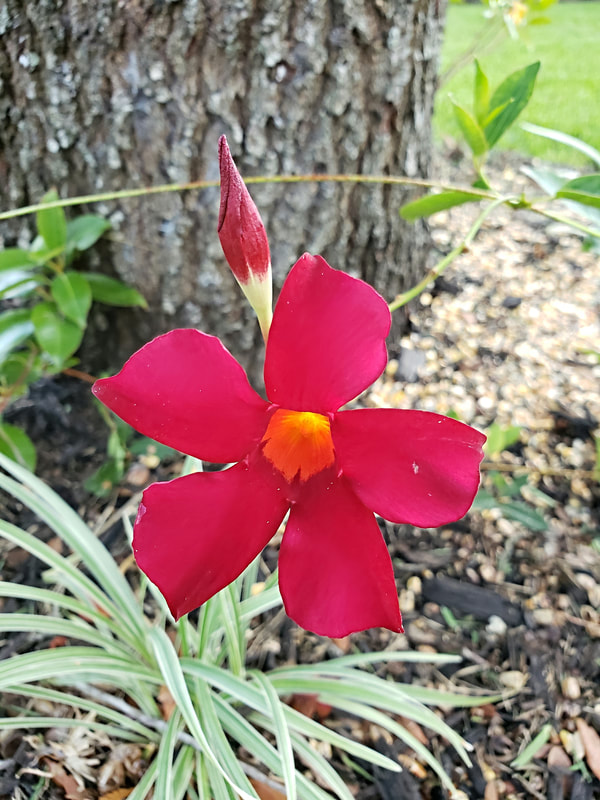
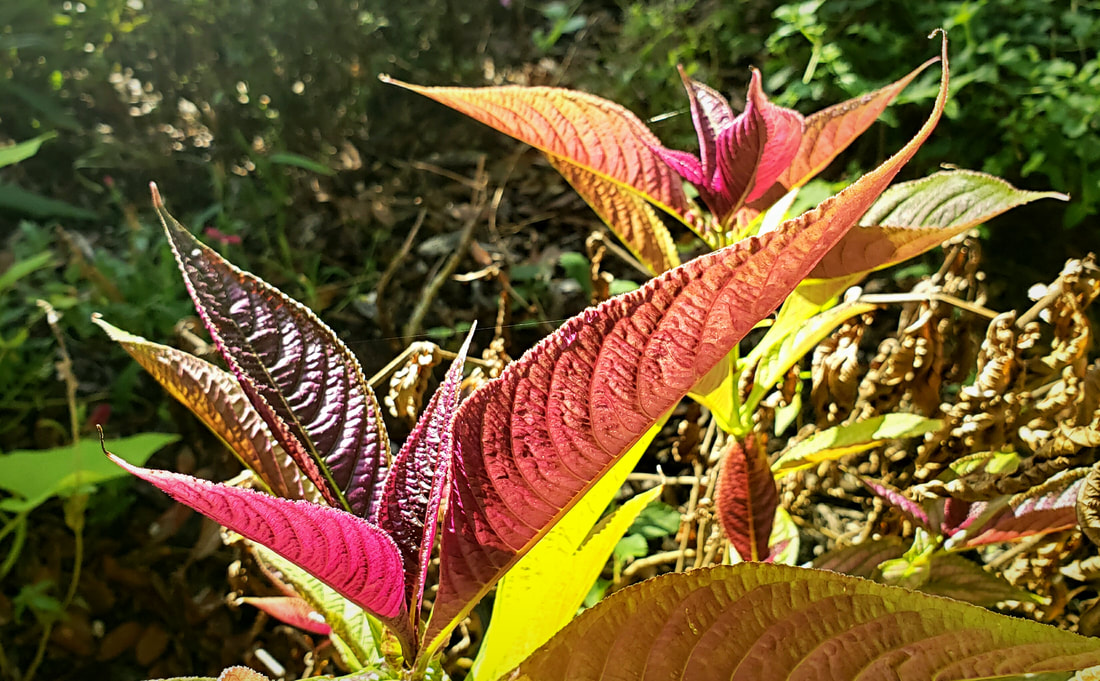
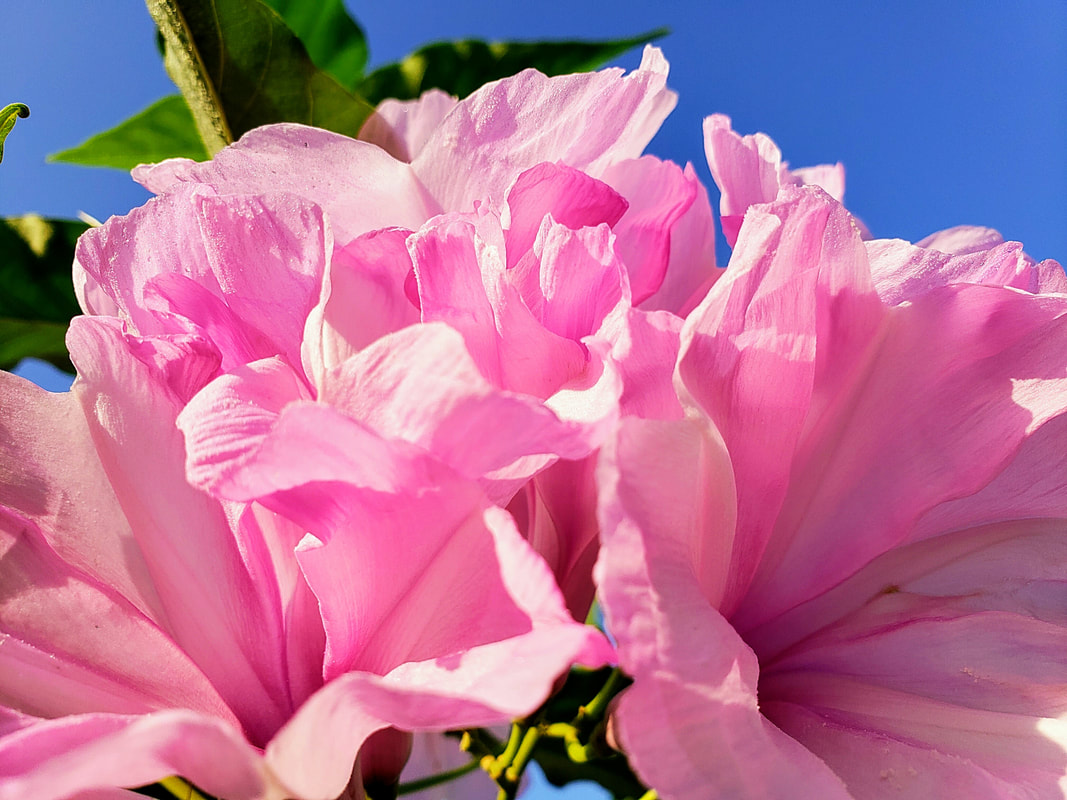

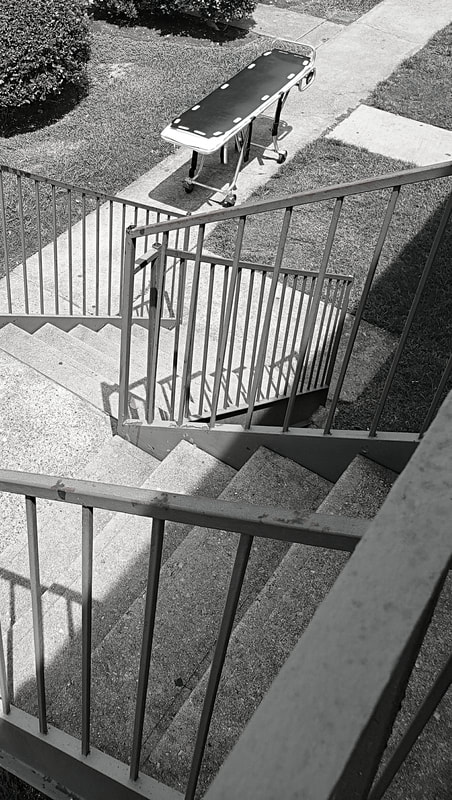
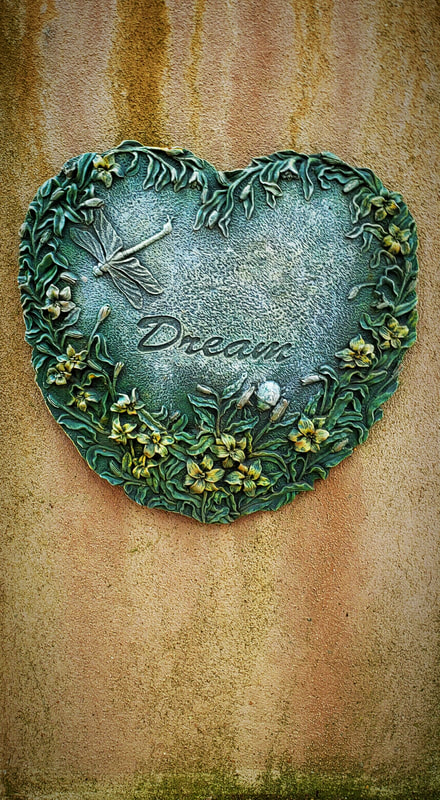
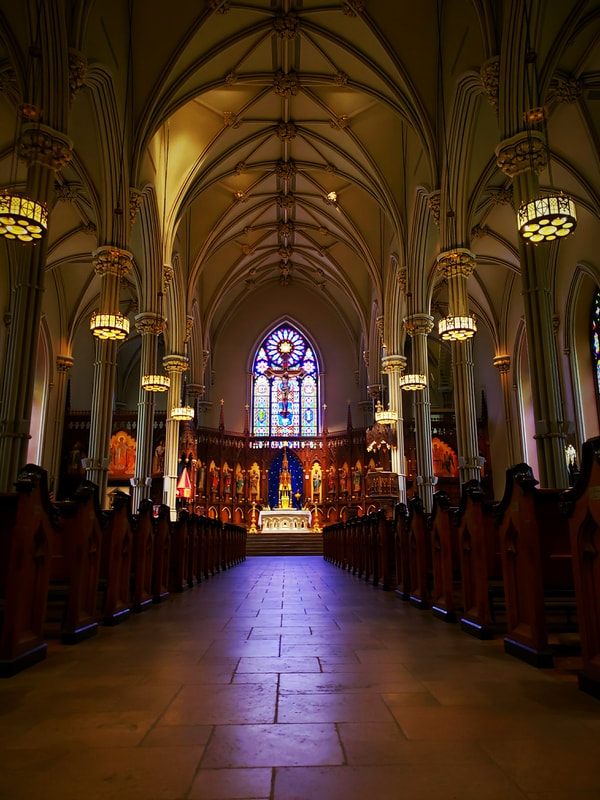
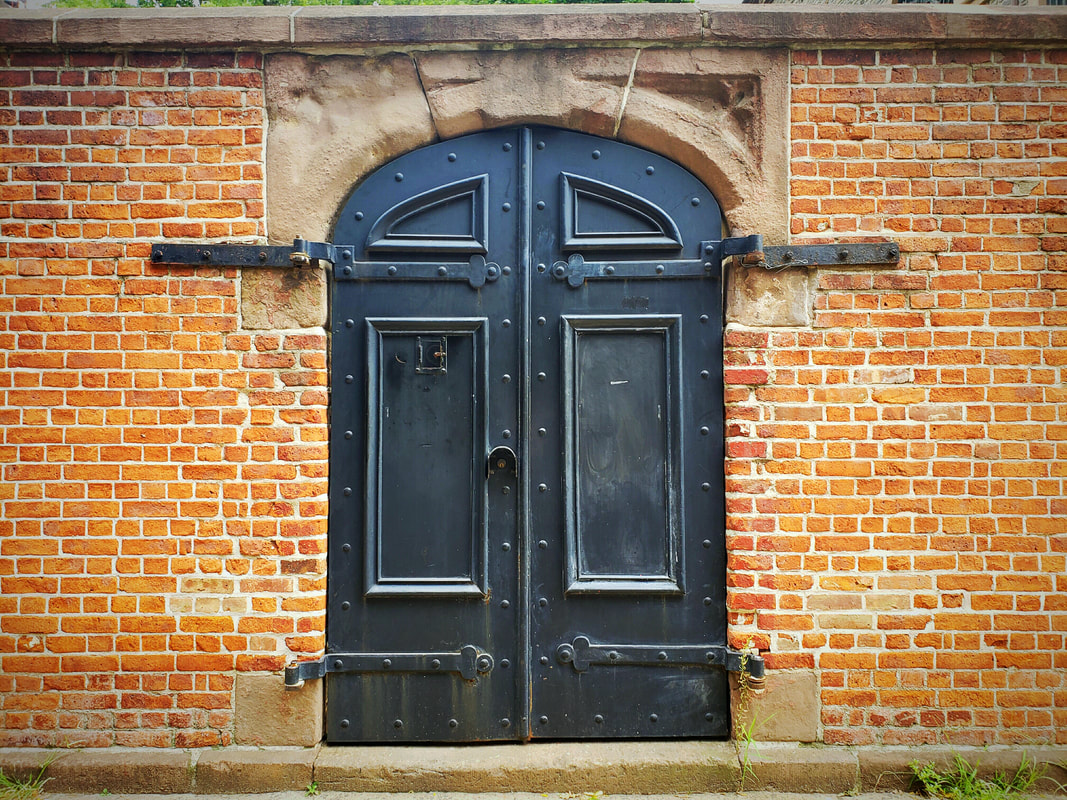
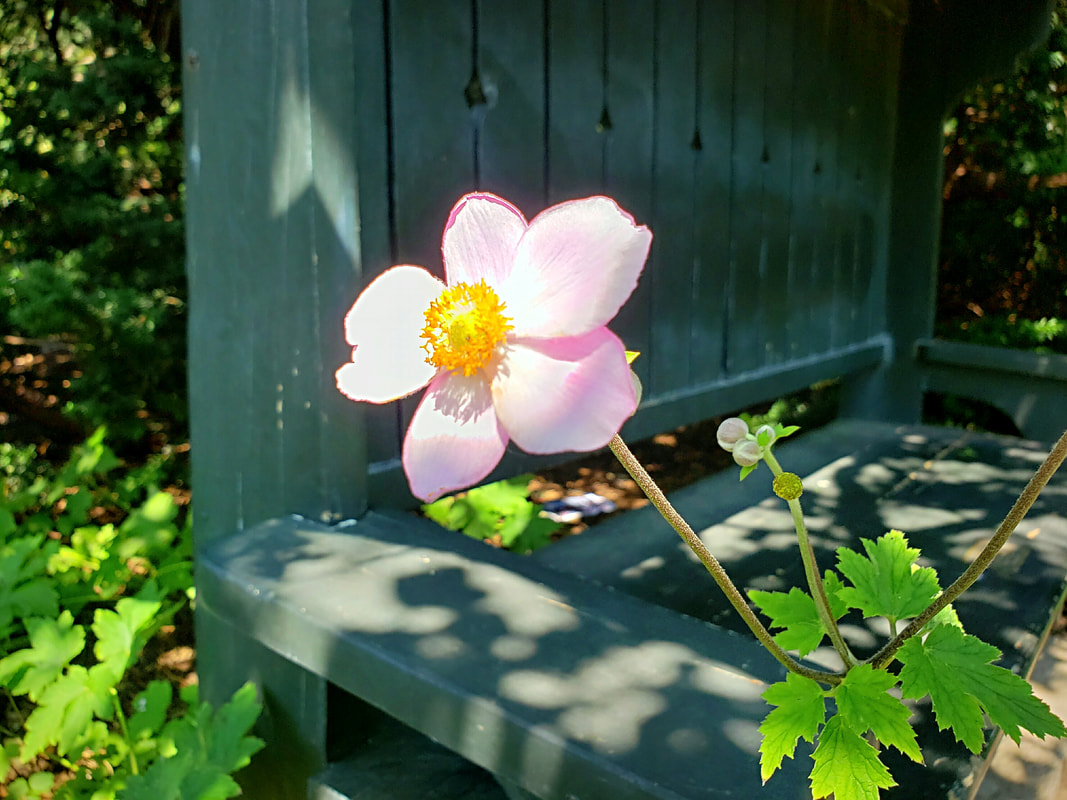
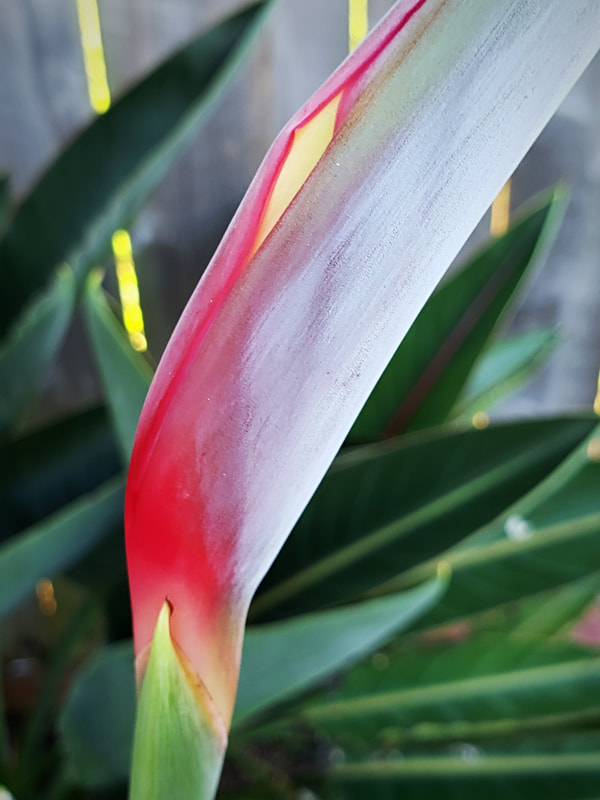
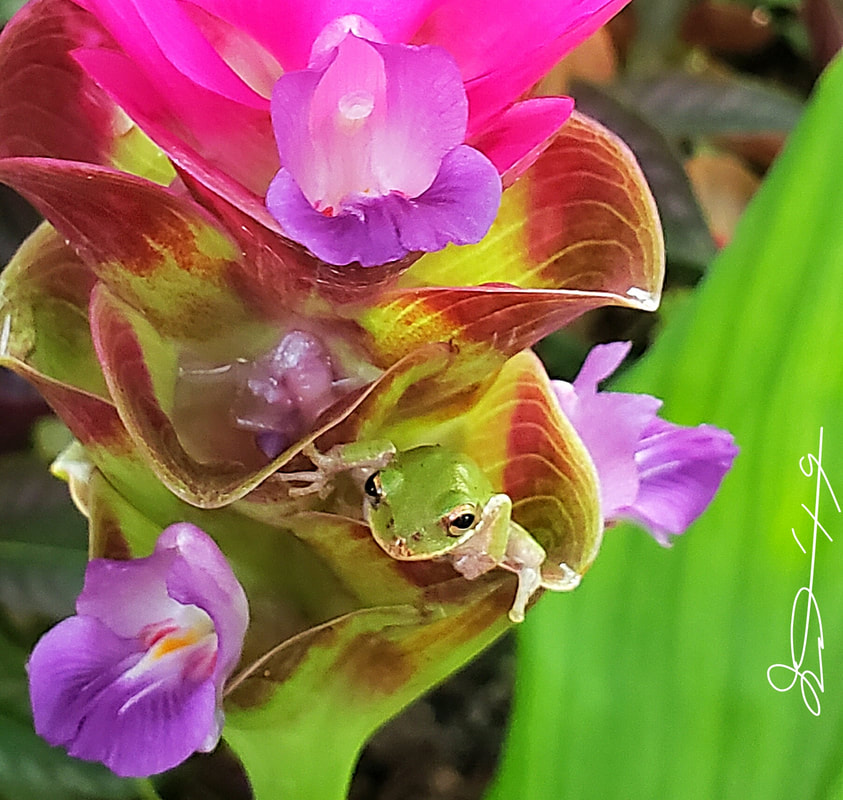
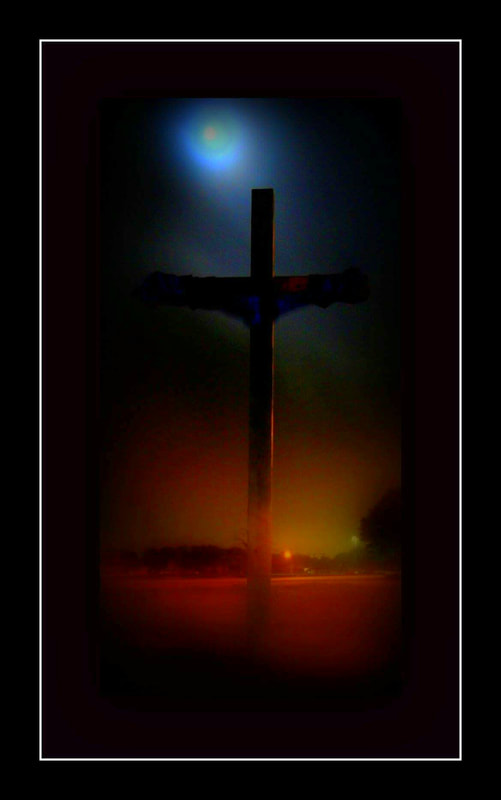
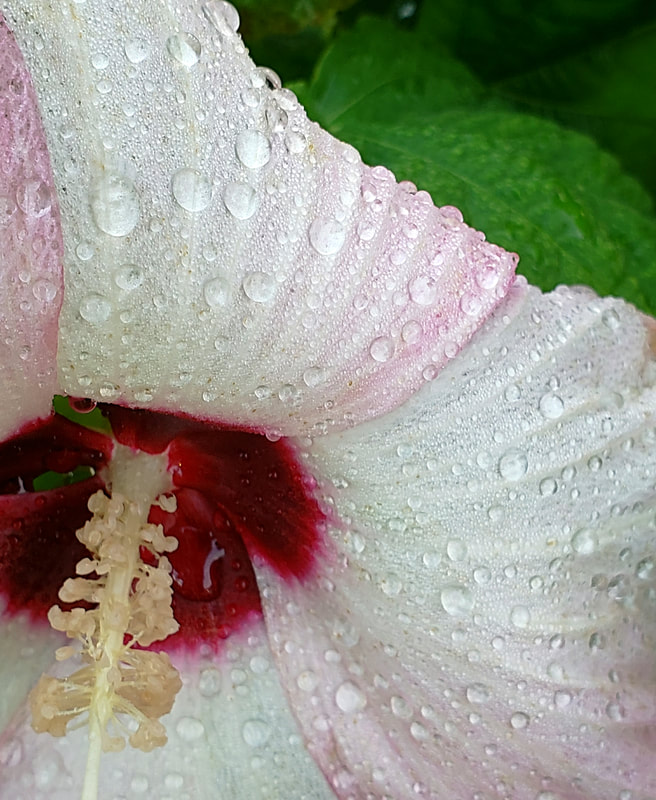
 RSS Feed
RSS Feed
